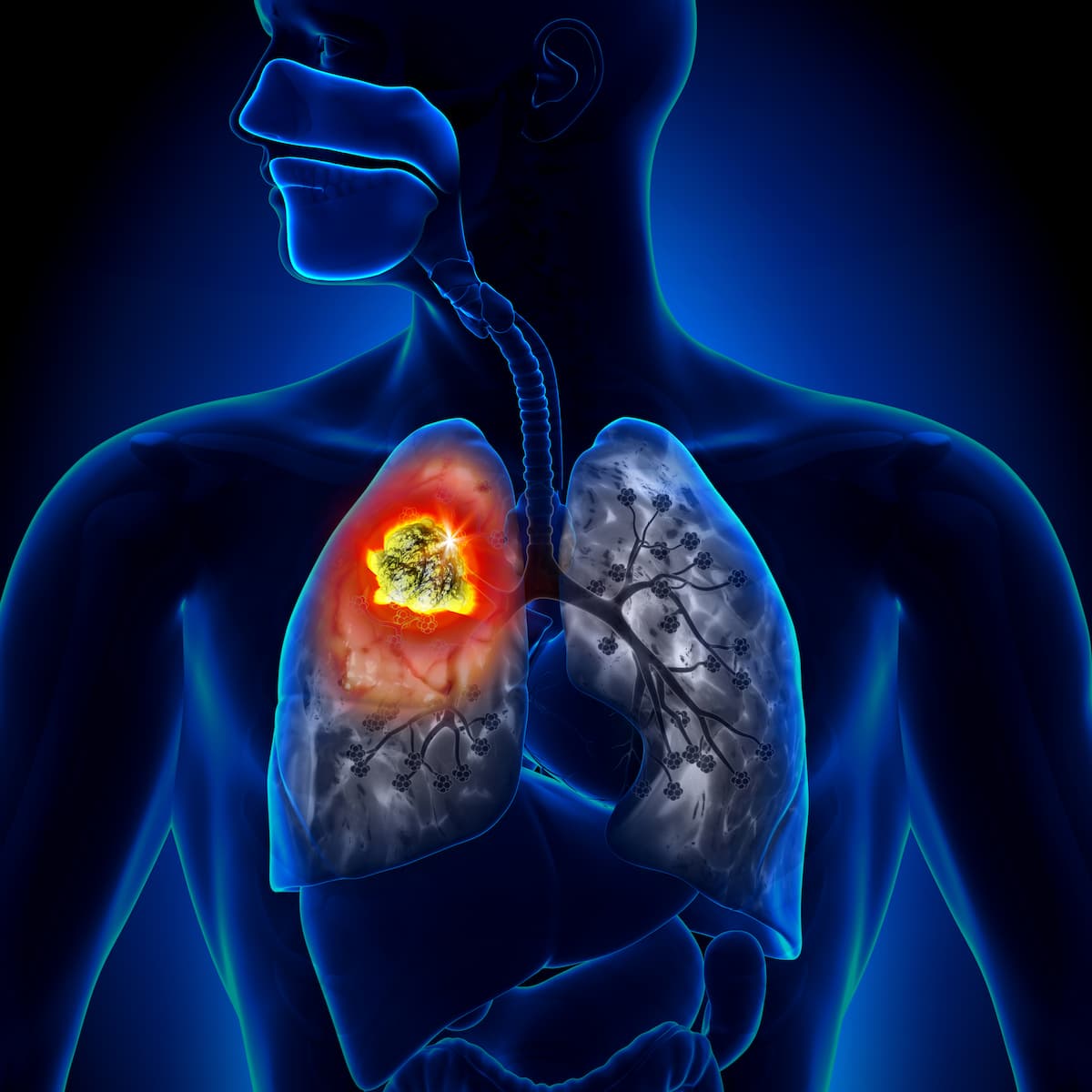Glasgow Prognostic Score May Predict Atezolizumab/Chemo Outcomes in SCLC
A favorable Glasgow prognostic score appears to correlate with improved overall survival and progression-free survival following treatment with atezolizumab plus carboplatin and etoposide for small cell lung cancer.
Investigators identified a significant association between Glasgow prognostic scores (GPS) and overall survival (OS) and progression-free survival (PFS) among patients receiving atezolizumab (Tecentriq) plus carboplatin and etoposide for small cell lung cancer (SCLC), according to findings from a retrospective study published in Frontiers in Oncology.
“GPS was identified as a significant predictor after [atezolizumab plus carboplatin and etoposide] therapy for patients with SCLC,” the study authors stated.

The median PFS and OS from treatment initiation, respectively, were 5.4 months (95% CI, 4.9-5.9) and 15.4 months (95% CI, 11.4-16.8). Additionally, a GPS of 0 or 1 correlated with a significantly better PFS.
Patients with a GPS of 0 to 1 had a median PFS of 5.8 months vs 3.8 months for those with a GPS of 2 (P = .0005). Moreover, the median OS in patients with a GPS of 0 or 1 was 16.5 months vs 8.4 months among those with a GPS of 2 (P <.0001).
“GPS was identified as a significant predictor after [atezolizumab plus carboplatin and etoposide] therapy for patients with SCLC,” the study authors stated. “Further large-scale analyses are required to examine whether the results of our analysis can be generalized to other SCLC cohorts.”
Investigators of this retrospective study explored several factors that may be predictive of survival outcomes following treatment with atezolizumab plus carboplatin and etoposide, including GPS, neutrophil-to-lymphocyte ratio (NLR), and body mass index (BMI).
Patients received a fixed dose of 1200 mg of atezolizumab intravenously on day 1 of each cycle plus carboplatin area under the curve of 4 to 5 min/mL intravenously on day 1 and 80 to 100 mg/m2 of etoposide intravenously on days 1 to 3 of each cycle for 4 to 6 cycles. Patients then received maintenance therapy with atezolizumab every 3 weeks.
Efficacy end points of interest included OS, PFS, and overall response rate (ORR) per RECIST v1.1 criteria.
Investigators retrospectively included patients in the analysis if they had cytologically or histologically confirmed SCLC, inoperable stage III/IV disease or postoperative recurrence, and previous treatment with atezolizumab plus carboplatin and etoposide.
Investigators included a total of 84 patients, of whom 83.3% were male and 16.7% were female. The median patient age was 71 years (range, 43-89).
Most patients had an ECOG performance status of 0 or 1 (83.3%) and stage III or IV SCLC (95.2%). Additionally, the median BMI was 22.0 kg/m2 (range, 14.1-32.8), and the median number of atezolizumab maintenance cycles was 2 (range, 0-24). In terms of GPS values, 63 patients had a score of 0 or 1, whereas 21 patients had a score of 2.
The ORR and disease control rate in the overall cohort was 72.6% (95% CI, 63.0%-82.1%) and 86.9% (95% CI, 79.6%-94.1%), respectively. Of the patients who responded, 5 had complete responses, 56 had a partial response, and 12 had stable disease.
Factors including liver metastases, cycles of atezolizumab maintenance therapy, albumin levels, neutrophil counts, lymphocyte counts, and responses rate correlated significantly with patient GPS scores (P <.05).
Prior radiotherapy, albumin levels, neutrophil counts, and lymphocytes counts correlated significantly with NLR values (P <.005). However, investigators did not note any significant relationships between NLR values and treatment efficacy.
“Although we analyzed a limited sample in our study, we could not find a significant relationship between the NLR and outcome after [atezolizumab plus carboplatin and etoposide] therapy for SCLC,” the study authors stated.
Sex, cycles of atezolizumab maintenance, and lymphocyte counts also had a significant correlation with BMI (P <.005), although the study authors noted that they could not identify BMI as a prognostic factor for SCLC.
Reference
Wasamoto S, Imai H, Tsuda T, et al. Pretreatment Glasgow prognostic score predicts survival among patients administered first-line atezolizumab plus carboplatin and etoposide for small cell lung cancer. Front. Oncol. 2023;12:1080729. doi:10.3389/fonc.2022.1080729